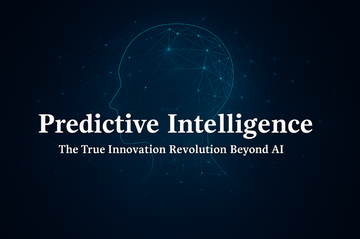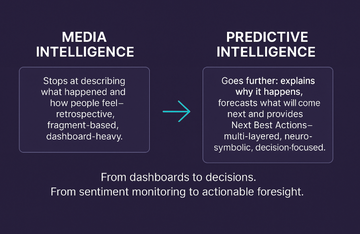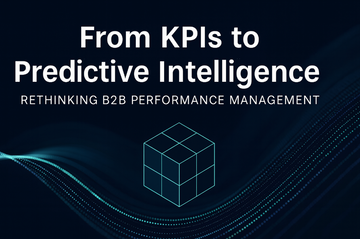Beyond Francis: How the Newly Elected Pope is Transforming the Catholic Church
by Uwe Seebacher on May 26, 2025

Strategic Alignment and Adaptive Leadership for a Vibrant Ecclesial Future
By Prof. Dr. Uwe Seebacher
Structural and Methods Scientist | International Faculty | Thought Leader on Predictive Strategy and Post-Growth Transformation
Introduction
The recent election of the new Pope marks a critical turning point, aligning impressively with the strategic imperatives necessary for the modern transformation of the Catholic Church. Previously in one of my recent news posts, I identified essential leadership profiles required to navigate the Church through contemporary global complexities:
- Systems Integrator,
- Global South Visionary,
- Post-Growth Navigator,
- Governance Reformer, and
- Synodal Shepherd.
The newly elected Pope embodies a compelling synthesis of these archetypes, particularly excelling as a Systems Integrator and Synodal Shepherd.
From his first address, the new pontiff underscored the imperative of unity amidst diversity, clearly articulating, "We are one family, woven together by faith, irrespective of cultural or theological differences." His vision underscores a sophisticated understanding of the Church as a complex global system that thrives on integration rather than uniformity. By fostering cohesive interaction across varied cultural and theological spectrums, he addresses systemic fragmentation, enhancing collaborative engagement.
Cross-Cultural Advisory Councils
Practically, he swiftly initiated cross-cultural advisory councils, explicitly bringing voices from Africa, Asia, and Latin America into key Vatican discussions. Such councils parallel the best practices of multinational corporations, where diverse global councils ensure strategic innovation and alignment across heterogeneous contexts.
As a Synodal Shepherd, he robustly advances Pope Francis’s Synod on Synodality, institutionalizing structured consultations at parish, diocesan, and global levels. This reflects contemporary organizational agility, embedding continuous learning and feedback mechanisms into ecclesial governance, crucial for adaptive responsiveness.
Central to this synodal vision is significantly expanded lay participation, establishing formal advisory roles for lay individuals—both men and women—in traditionally clergy-exclusive decision-making processes. This structural shift mirrors governance reforms in leading global organizations, promoting accountability, transparency, and sustained engagement necessary to restore institutional credibility.
The Global South´s Critical Role
The Pope’s acknowledgment of the Global South's critical role in Catholicism’s future further confirms his strategic acumen. Recognizing demographic shifts, he actively promotes localized pastoral innovations. He introduced platforms for systematic knowledge-sharing, enabling successful pastoral strategies from rapidly growing regions to be adopted effectively in areas experiencing decline. This proactive exchange model is consistent with contemporary cross-sector best practices of leveraging local successes to drive global strategic improvements.
Moreover, the new Pope demonstrates an acute awareness of digitalization's transformative potential. His establishment of the Vatican Digital Task Force aims to elevate the Church’s digital engagement capabilities, employing predictive intelligence to optimize interactions with believers—an approach analogous to customer experience management in the corporate world. This focus significantly enhances relevance and responsiveness within the digital era.
The Adaptive Approach to Secularization-related Challenges
In governance, he swiftly addressed historical transparency challenges by committing to unprecedented accountability. His immediate implementation of an independent, lay-led audit of Vatican financial and administrative practices signals bold reform, epitomizing the Governance Reformer archetype and aiming directly at restoring public trust.
Furthermore, his adaptive approach to secularization-related challenges is evident in Europe, where he proposes innovative revitalization strategies modeled after small-group community structures that have flourished in the Global South. His perspective of proactive community fostering over merely managing numerical decline parallels strategic adaptive leadership methods observed in successful organizational transformations during periods of contraction.
Profound Reasons for Optimism
In summary, the newly elected Pope notably fulfills the critical leadership profiles identified in my earlier reflections as essential for guiding the Catholic Church through contemporary transitions. His integrative leadership style, commitment to synodal governance, strategic embrace of digital and predictive intelligence, and decisive governance reforms collectively represent adaptive leadership at its finest.
These early days of his pontificate provide profound reasons for optimism. His clear structural foresight, systemic understanding, pastoral humility, and openness to modern methodologies promise a period of profound ecclesial renaissance. Balancing tradition with necessary transformation, the Church under his guidance stands ready not merely to endure contemporary complexities but to thrive, significantly enriching the spiritual journeys of believers worldwide.
Possible Milestones for Consideration and Dialogue
Below are several initiatives derived from current research and practical insights, intended to foster meaningful discourse within the Church community. These are not prescriptive solutions but rather thoughtful possibilities to inspire dialogue, exploration, and potentially innovation.
1. A Vatican Center for Predictive Cultural Intelligence (VCPCI)
Establishing a center focused on understanding emerging global trends through the integration of cultural intelligence and predictive analytics could help the Church proactively address societal changes. Such a center might ethically leverage insights to assist dioceses and parishes in anticipating shifts in their communities and developing culturally resonant pastoral responses.
Suggested Milestone:
-
Initiate exploratory discussions on creating a VCPCI by 2027, inviting diverse cultural perspectives and expertise.
2. The Emerald Deal – A Grassroots Approach to Sustainability
Inspired by recent ideas around community-based sustainability, the "Emerald Deal" could represent an authentic commitment to environmental stewardship at the local parish level. This concept encourages tangible and community-driven sustainability efforts, aligning closely with the principles expressed in Laudato Si’, fostering environmental renewal from within local church communities.
Suggested Milestone:
-
Convene global and regional forums by 2026 to discuss parish-level sustainability practices and collaboratively develop achievable goals.
3. Improving Church Communication Practices
Building upon insights from contemporary organizational communication research, the Church could engage in an open dialogue about enhancing internal and external communication practices. Aimed at greater clarity, transparency, and responsiveness, discussions might explore how integrated communication strategies could enhance trust and reduce barriers between clergy, laity, and the wider society.
Suggested Milestone:
-
Launch pilot programs by 2028 in selected dioceses to evaluate new communication approaches, gathering insights to refine these strategies further.
4. A Global Synodal Leadership Academy
Establishing an academy dedicated to cultivating adaptive leadership among Church leaders could be explored. Such an institution might offer training in intercultural dialogue, crisis management, innovation, and pastoral agility, enriching the capabilities of bishops, priests, and lay leaders to effectively navigate current challenges.
Suggested Milestone:
-
Consider preliminary dialogues on the feasibility of a leadership academy, aiming for potential first workshops or pilot classes by 2029.
5. Exploring Predictive Lobbying Intelligence (PLI)
The concept of Predictive Lobbying Intelligence could enhance the Church's advocacy efforts by identifying and proactively addressing emerging global justice and humanitarian issues. Discussions might explore how data analytics could ethically and effectively inform the Church’s diplomatic and advocacy roles.
Suggested Milestone:
-
Initiate open dialogues around predictive advocacy strategies, considering ethical frameworks and practical feasibility by 2028.
6. Believer Experience Management Platform (BXMP)
Drawing from customer experience insights, a Believer Experience Management Platform could potentially support parish and diocesan efforts to personalize and enhance pastoral care and community engagement. This idea is aimed at exploring how a thoughtful, data-informed approach might strengthen the individual and collective spiritual journeys within the Church.
Suggested Milestone:
-
Open initial consultations by 2027 to explore practical and ethical considerations in deploying such a platform in pilot communities.
Fostering Collaborative Exploration and Discussion
These ideas are offered with humility, intended not as definitive solutions but as starting points for meaningful organizational conversations. The purpose is to encourage open dialogue, collaborative exploration, and thoughtful experimentation within the Church’s broader community.
The timeless mission of the Church benefits greatly from ongoing reflection and innovation. By engaging these ideas and others like them, the Church can thoughtfully consider pathways forward, nurturing a vibrant, adaptive, and responsive community of faith. Let us approach this moment as an opportunity to explore together, remaining open to the guidance of wisdom, innovation, and thoughtful collaboration.





